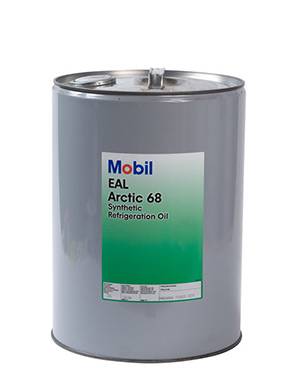2 月 . 13, 2025 09:00 Back to list
different types of control valves and their applications
In the realm of industrial applications, control valves play an indispensable role in modulating the flow of fluids and gases. Their efficacy determines the efficiency, safety, and reliability of operations in sectors ranging from oil and gas to pharmaceuticals and manufacturing. Understanding the different types of control valves and their specific applications is critical for optimizing system performance and ensuring sustainable operations.
Gate Valves Robust and Durable Gate valves are preferred in systems necessitating either full flow or no flow, without the precision modulating capabilities found in other types. With a straightforward design that lifts a gate out of the path of flow, they are enduring solutions for applications involving non-corrosive fluids, such as water systems. Known for their durability, they serve well in high-pressure and high-temperature environments, including refineries and petrochemical plants. Check Valves Safeguarding Flow Direction Check valves, integral for ensuring unidirectional flow, protect systems from the potentially damaging effects of backflow. They are commonly used in pumps and compressor systems, preventing reverse flow that could lead to equipment failures. With types ranging from swing to lift and dual plate designs, they offer tailored solutions for ensuring safety in hydraulic systems, pipelines, and various industrial processes. Plug Valves Compact and Reliable Plug valves offer reliability and compact design, using a cylindrical or conical plug to control flow within pipes. Their simple mechanism allows for rapid operation, often employed in applications involving chemical, petroleum, and steam services. Particularly suited for corrosive environments, their robust construction and ease of maintenance make them valuable in operations demanding frequent valve positioning. Pinch Valves Flexibility in Challenging Media For abrasive, corrosive, or particulate media, pinch valves provide unparalleled service. Utilizing a flexible elastomer sleeve to pinch closed, they provide isolation of contaminants and are ideal in mining, slurry, and waste applications. Their ability to handle diverse media without clogging or wear positions them uniquely in systems where durability and low maintenance are crucial. Selecting the appropriate control valve is a decision influenced by factors like fluid characteristics, pressure, temperature, and desired control precision. Choosing the wrong type can lead to inefficiencies or operational hazards. Therefore, expertise and thorough understanding of each valve’s functionality and application ensure optimal system performance. In industries where even minor flow disruptions can lead to substantial operational or financial repercussions, the role of a control valve cannot be overstated. By leveraging the right valve technology, organizations can enhance the longevity and efficiency of their operations, maintaining competitive advantage and upholding safety standards.


Gate Valves Robust and Durable Gate valves are preferred in systems necessitating either full flow or no flow, without the precision modulating capabilities found in other types. With a straightforward design that lifts a gate out of the path of flow, they are enduring solutions for applications involving non-corrosive fluids, such as water systems. Known for their durability, they serve well in high-pressure and high-temperature environments, including refineries and petrochemical plants. Check Valves Safeguarding Flow Direction Check valves, integral for ensuring unidirectional flow, protect systems from the potentially damaging effects of backflow. They are commonly used in pumps and compressor systems, preventing reverse flow that could lead to equipment failures. With types ranging from swing to lift and dual plate designs, they offer tailored solutions for ensuring safety in hydraulic systems, pipelines, and various industrial processes. Plug Valves Compact and Reliable Plug valves offer reliability and compact design, using a cylindrical or conical plug to control flow within pipes. Their simple mechanism allows for rapid operation, often employed in applications involving chemical, petroleum, and steam services. Particularly suited for corrosive environments, their robust construction and ease of maintenance make them valuable in operations demanding frequent valve positioning. Pinch Valves Flexibility in Challenging Media For abrasive, corrosive, or particulate media, pinch valves provide unparalleled service. Utilizing a flexible elastomer sleeve to pinch closed, they provide isolation of contaminants and are ideal in mining, slurry, and waste applications. Their ability to handle diverse media without clogging or wear positions them uniquely in systems where durability and low maintenance are crucial. Selecting the appropriate control valve is a decision influenced by factors like fluid characteristics, pressure, temperature, and desired control precision. Choosing the wrong type can lead to inefficiencies or operational hazards. Therefore, expertise and thorough understanding of each valve’s functionality and application ensure optimal system performance. In industries where even minor flow disruptions can lead to substantial operational or financial repercussions, the role of a control valve cannot be overstated. By leveraging the right valve technology, organizations can enhance the longevity and efficiency of their operations, maintaining competitive advantage and upholding safety standards.
Latest news
-
Y Type Strainers: A Comprehensive GuideNewsOct.18,2024
-
Understanding Water Valve Options for Your NeedsNewsOct.18,2024
-
Functions and TypesNewsOct.18,2024
-
An Essential Component for Fluid SystemsNewsOct.18,2024
-
Adjustment and ReplacementNewsOct.18,2024
-
Slow Closing Check Valves: A Key Component in Fluid SystemsNewsOct.08,2024
Related PRODUCTS









